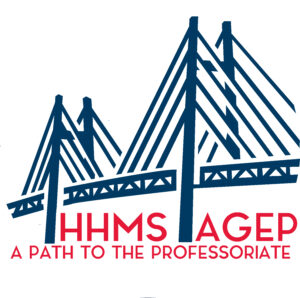The AGEP HHMS Alliance will design and make available to all partnering institutions the following courses as part of Level II activities:
-
- Effective Technologies in Teaching and Learning
- Diversity in the College Classroom
- Faculty Roles, Responsibilities, and Ethics Practices in the Academy
- Culturally Responsive Pedagogies and Assessments
- The Learning-Centered Community College
- Effective Mentoring for Graduate Students
Courses will be taught by faculty from the HHMS-AGEP Alliance and offered in both an online synchronous and asynchronous format. To successfully complete Level II, students must earn a B or better in two core courses and one elective course. Upon successful completion of the required Level II courses, participants will be well prepared to engage in the Level III, experiential component of the program __ the apprenticeship at the community college. The first semester of the apprenticeship will provide a vicarious learning experience where the student observes the Master Teacher and attends faculty meetings, as well as receives verbal guidance and feedback when they engage in reflective discussion with the faculty mentor. The culmination of the Level III intervention, assuming the role of instructor of record, will deliver both a master experience and emotional engagement. Though the participant will be actively supervised by the faculty mentor, the PhD candidate will be fully in charge of the course, experiencing both the responsibilities and rewards of teaching first-hand. The combination of Level II and III activities are predicted to result in increased teaching self-efficacy and faculty identity __ major drivers in choosing an academic career.
Evaluation
The three short-term goals of the cognitive apprenticeship are:
- Exposing students to a teaching experience within an institutional context where teaching is the primary focus to foster a greater intrinsic interest in teaching,
- Providing teaching scaffolding experiences to minimize failure while developing teaching self-efficacy, and
- Destigmatizing teaching at a community college to positively impact outcome expectation of a teaching career at a community college, will be evaluated by the Social Science Researcher, the Project Evaluator, and the Faculty Mentor at the community college.
Attitudinal changes and beliefs (Goals 1 and 3) will be evaluated by the Program Evaluator and the Social Science Researcher using a mix methods approach to collect both quantitative and qualitative data. Quantitative data will be collected by the use of questionnaires which will examine key indicators of changes in perception, knowledge awareness, and attitudes of students participating in the apprenticeship. The questionnaire will be used both in a formative assessment to collect baseline data at the beginning of the apprenticeship, and in a summative evaluation upon completion of the apprenticeship. To obtain a more detailed and nuanced approach to attitudinal change/beliefs, structured qualitative data collection protocols will be developed and used for collecting formative and summative data in the case studies, focus groups, and personal interviews.
Knowledge acquisition of discipline specific pedagogies, course delivery, classroom skills and ability to teach a culturally diverse audience (goal 2) are some examples of metrics, which will be used by the faculty mentor to evaluate the student’s teaching performance. These metrics will be clearly articulated in the course syllabus for the Teaching Apprentice Course (Teaching Field Experience). The syllabus will be produced collaboratively by the HHMS-AGEP Alliance faculty and administrators in conjunction with the administrators and future faculty mentors from the CCN. The syllabus will articulate the course’s prerequisites, description, objectives, scheduled content, and grade determination. At the end of each semester, the faculty mentor at the CCN will be responsible for submitting the grade earned by the registrant to the AGEP HHMS administrator who would be responsible for ensuring that the grade is recorded.
Support and Time to Degree Implications
All of the institutions constituting the AGEP HHMS Alliance have committed to providing financial support to students during the apprenticeship year at a community college in the CCN. Students receiving this support will not have teaching obligations at their home institution.
Given the fact that students participating in the apprenticeship program will be exempted from teaching at their home institutions, and considering the evidence presented by Mark Conolly and Eric Bettinger (3,4) which supports a conclusion that teaching development programs do not lengthen time to degree, we anticipate that students participating in the AGEP HHMS Faculty Preparation Model will complete their degree in record time.

